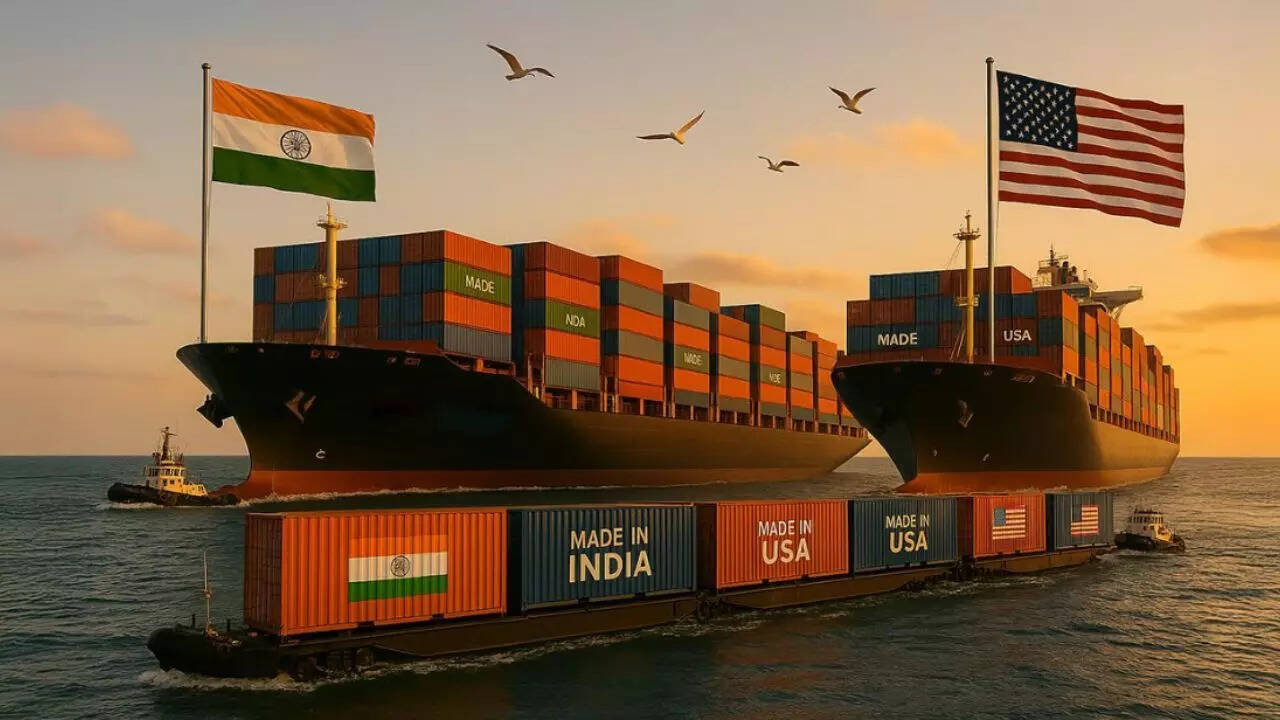The India-UK free trade agreement, signed recently, promises significant gains for India, including duty-free access to UK markets for 99% of exports. This landmark deal is set to boost job opportunities in labor-intensive sectors, reduce tariffs on British goods like cars and whiskey, and increase agricultural exports.
A New Chapter for India-UK Trade: What Does it Mean for You?
The whispers have turned into a shout. The India-UK Free Trade Agreement (FTA) is no longer a possibility on the horizon; it’s a tangible agreement, poised to reshape the landscape of commerce between these two historical partners. But beyond the headlines and political pronouncements, what does this deal really mean for the average Indian consumer, business owner, and professional? Let’s delve into the nitty-gritty and uncover the potential boons – and maybe a few challenges – that lie ahead.
Unpacking the India-UK Free Trade Agreement: Beyond the Headlines
This isn’t just about politicians shaking hands and signing documents. This FTA is about dismantling trade barriers, slashing tariffs, and fostering a more streamlined flow of goods, services, and investment between India and the United Kingdom. The immediate impact will be felt in the form of reduced prices on certain imported goods, making products that were previously out of reach more accessible. Expect to see this reflected in items like Scotch whisky, certain automobiles, and specialized machinery. 
But the benefits extend far beyond consumer goods.
Boosting Indian Exports: A Gateway to the UK Market
For Indian businesses, particularly those in sectors like textiles, agriculture, and pharmaceuticals, the FTA represents a golden opportunity. Reduced tariffs mean their products become more competitive in the UK market, leveling the playing field and potentially leading to significant export growth. Imagine Indian garment manufacturers gaining a stronger foothold in the UK fashion scene, or Indian farmers finding new markets for their produce. This boost in exports translates to job creation, economic growth, and increased prosperity across various sectors.
The deal also aims to simplify customs procedures and reduce bureaucratic hurdles, making it easier for Indian businesses to navigate the complexities of international trade. This is particularly beneficial for small and medium-sized enterprises (SMEs), which often lack the resources to cope with cumbersome regulations.
Investment Flows: A Two-Way Street
The FTA isn’t just about goods; it’s also about fostering greater investment between the two countries. Expect to see increased investment from UK companies into India, particularly in sectors like infrastructure, renewable energy, and financial services. This infusion of capital can drive innovation, create new jobs, and stimulate economic activity.
Conversely, the FTA also makes it more attractive for Indian companies to invest in the UK, giving them access to a sophisticated market, advanced technology, and a highly skilled workforce. This two-way flow of investment will strengthen economic ties and foster collaboration between Indian and British businesses.
Professional Opportunities: A Boon for Skilled Workers
The agreement also addresses the movement of skilled professionals between the two countries. While details are still being finalized, the FTA aims to streamline visa processes and facilitate the temporary movement of professionals, particularly in sectors like IT, healthcare, and engineering. This opens up new opportunities for Indian professionals to work and gain experience in the UK, while also allowing UK companies to tap into India’s vast pool of skilled talent. This is a welcome development considering the increasing global demand for specialized skills. Consider reading more about India’s growing tech sector and its impact on global markets.
Navigating the Challenges: A Word of Caution
While the FTA holds immense promise, it’s not without its potential challenges. Indian businesses need to be prepared to compete with UK companies on quality, innovation, and customer service. They need to invest in research and development, adopt best practices, and build strong brands to succeed in the competitive UK market.
Furthermore, the FTA could lead to increased competition in certain sectors, potentially impacting domestic industries. Policymakers need to carefully monitor the impact of the agreement and take measures to protect vulnerable industries.
The Road Ahead: Embracing the Opportunities
The India-UK Free Trade Agreement marks a significant step forward in strengthening the economic ties between these two nations. By reducing trade barriers, fostering investment, and facilitating the movement of skilled professionals, the FTA has the potential to unlock significant benefits for both India and the UK. However, success hinges on businesses and policymakers embracing the opportunities, addressing the challenges, and working together to create a vibrant and mutually beneficial trade relationship. It’s a new chapter, and the pen is in our hands to write a prosperous future.







